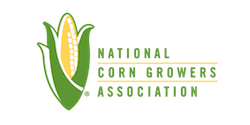EPA Administrator Gina McCarthy’s promise that under the proposed rules defining Waters of the United States (WOTUS) under the Clean Water Act (CWA) “all normal farming practices are exempt – period” may be falling on deaf ears in the agriculture community.
 McCarthy is visiting Missouri this week to explain the proposed rules but she faces an uphill battle from the major farm organizations opposing it. This week, the groups took aim at the “Interpretive Rule” that was published in the Federal Register at the same time as WOTUS. In comments submitted to EPA this week, the National Corn Growers Association (NCGA) called for withdrawal of that rule, citing concerns over the implications for farmers carrying out normal activities. NCGA also voiced strong concern over the potential legal liabilities which could arise as a result of the rule. Firmly calling for full withdraw, the comments outlined how the rule, in practice, would increase legal liability for farmers going about normal, routine farming practices.
McCarthy is visiting Missouri this week to explain the proposed rules but she faces an uphill battle from the major farm organizations opposing it. This week, the groups took aim at the “Interpretive Rule” that was published in the Federal Register at the same time as WOTUS. In comments submitted to EPA this week, the National Corn Growers Association (NCGA) called for withdrawal of that rule, citing concerns over the implications for farmers carrying out normal activities. NCGA also voiced strong concern over the potential legal liabilities which could arise as a result of the rule. Firmly calling for full withdraw, the comments outlined how the rule, in practice, would increase legal liability for farmers going about normal, routine farming practices.
NCGA was also one of 90 agricultural organizations, led by the National Pork Producers Council and the American Farm Bureau Federation, commenting that the interpretive rule is “a legislative rule that must go through notice and comment rulemaking.” The groups say the interpretive rule “binds farmers and ranchers with new, specific legal obligations under the CWA. It modifies existing regulations interpreting the statutory term ‘normal farming, ranching and silviculture.’ under the 404 Dredge and Fill Program.
The National Cattlemen’s Beef Association claims the rule will make USDA’s Natural Resources Conservation Service (NRCS) the “water police” and result in cattle producers putting less conservation on the ground.
 “The EPA claims they have made right with the agricultural community by interpreting their exemption to only include the ‘normal’ 56 NRCS practice standards, excluding all other NRCS practice standards and all voluntary conservation activities,” said Ashley McDonald, NCBA environmental council. “By defining these very specific 56 practices, the interpretive rule only narrows the scope of what is considered normal farming and ranching practices. These practices, such as building a fence, or grazing cattle, never needed a permit before, but now require oversight by NRCS and mandatory compliance with its standards.”
“The EPA claims they have made right with the agricultural community by interpreting their exemption to only include the ‘normal’ 56 NRCS practice standards, excluding all other NRCS practice standards and all voluntary conservation activities,” said Ashley McDonald, NCBA environmental council. “By defining these very specific 56 practices, the interpretive rule only narrows the scope of what is considered normal farming and ranching practices. These practices, such as building a fence, or grazing cattle, never needed a permit before, but now require oversight by NRCS and mandatory compliance with its standards.”
We’ll see how well McCarthy can ease the minds of the agricultural community tomorrow when the Kansas City Agribusiness Council has her for lunch – yes, I meant to say it that way!

